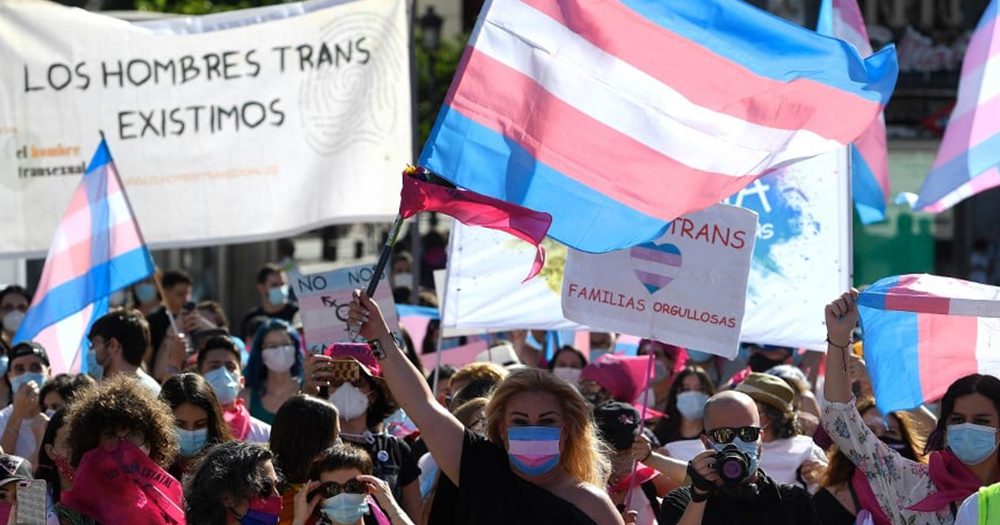After months of debate, Spain approved a historic law on Thursday, February 17, that allows trans people aged 16 and older to change the gender on their ID card by completing a simple declaration form.
The new legislation passed by a vote of 191 to 60, with 91 abstaining. The bill applies to everyone aged 16 and older, with special permissions for teens aged 14-16 if they are accompanied by a legal guardian, and those aged 12-14 if they gain authorisation from the court.
Prior to this law, for trans people to change their gender in Spain, they were required to complete multiple medical assessments to gain a gender dysphoria diagnosis. Additionally, they had to undergo hormone treatment for a minimum of two years before their request could be considered.
Podemos Equality Minister Irene Montero said that Spain has taken a historic step forward by recognising the “free determination of gender identity,” and Carla Antonelli, the first trans woman to serve as a Spanish lawmaker, described the occasion as “a historic day”.
#LaLeyTransYaEsLEY y punto, #GRACIAS ministra y gracias a todas/os/es, a lxs activistas, partido políticos, al FEMINISMO en mayúsculas y tantas personas que nos habéis acompañado. #FinDelCalvario ✊?️⚧️ pic.twitter.com/zmCMuquNKj
— Carla Antonelli / ?️⚧️☂️ (@CarlaAntonelli) February 16, 2023
The bill came after long-fought debates between lobbyists and campaigners.
Spain initially approved a bill allowing trans individuals to change their gender without needing to undergo medical procedures or attend court in June 2022, but the country held fierce discussions for months debating the details of the bill with tensions dividing Spain’s left-wing government.
Debates continued into 2023, and a member of the opposing Popular Party, Maria Jesus Moro, made a last-minute effort to urge her colleagues to vote against the bill. She cited how several European countries have been reluctant to pass gender-affirming legislation this year, saying, “We’ve all heard about countries backtracking because they now realise they were too hasty…”
However, her calls for opposition did not persuade the majority.
Additionally, Spain passed another historic piece of legislation the week and became the first EU country to legalise paid time off for period pain.
Citing a Spanish Gynaecology and Obstetrics Society study that recognises that about a third of people who menstruate experience severe pain, the new law allows employees to take paid medical leave for period pain. A doctor must approve the time off, and the state social security system pays for the sick leave.
Spain joins a small number of countries, including Japan, Indonesia and Zambia, that currently offer menstrual leave.
© 2023 GCN (Gay Community News). All rights reserved.
Support GCN
GCN is a free, vital resource for Ireland’s LGBTQ+ community since 1988.
GCN is a trading name of National LGBT Federation CLG, a registered charity - Charity Number: 20034580.
GCN relies on the generous support of the community and allies to sustain the crucial work that we do. Producing GCN is costly, and, in an industry which has been hugely impacted by rising costs, we need your support to help sustain and grow this vital resource.
Supporting GCN for as little as €1.99 per month will help us continue our work as Ireland’s free, independent LGBTQ+ media.
